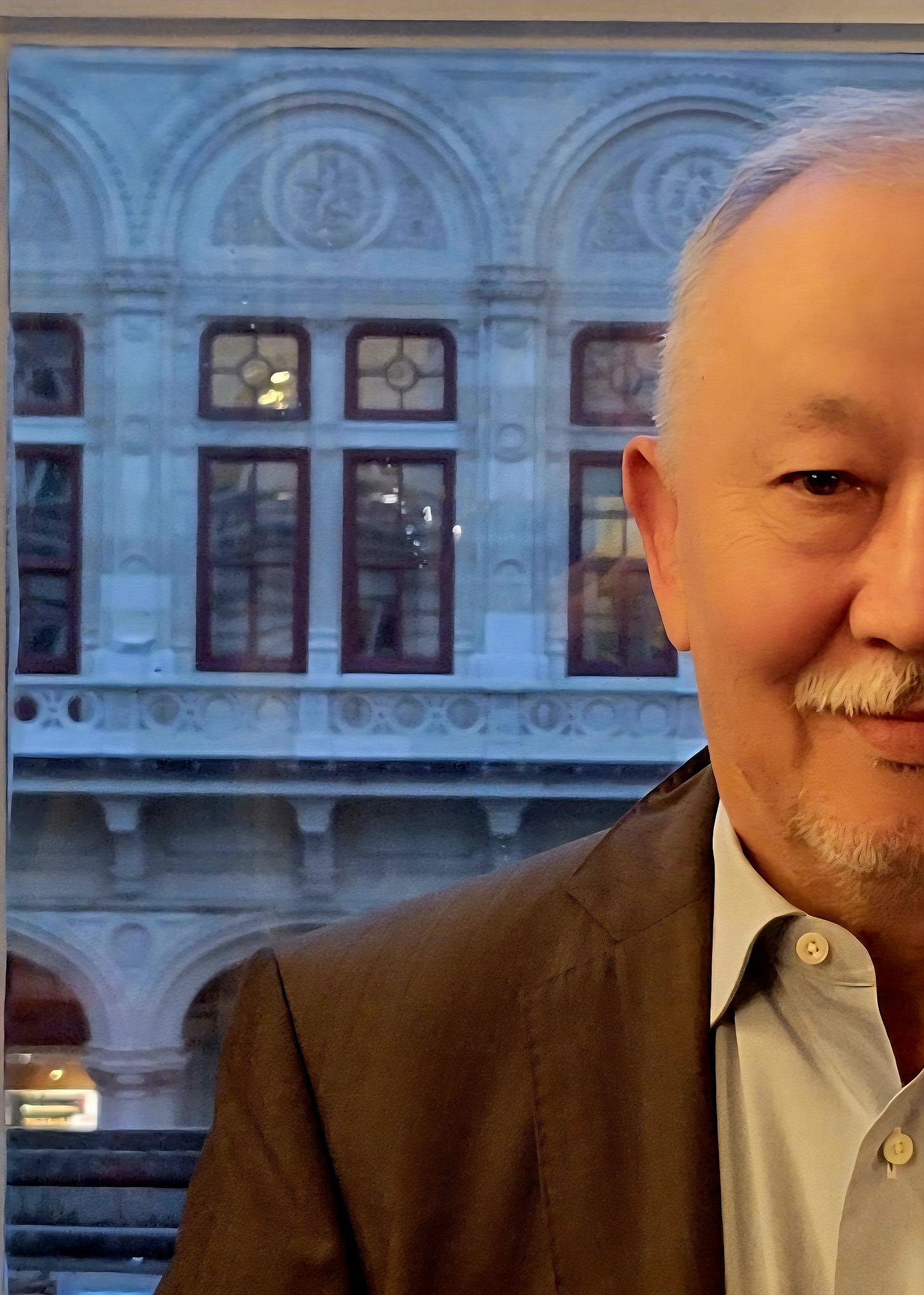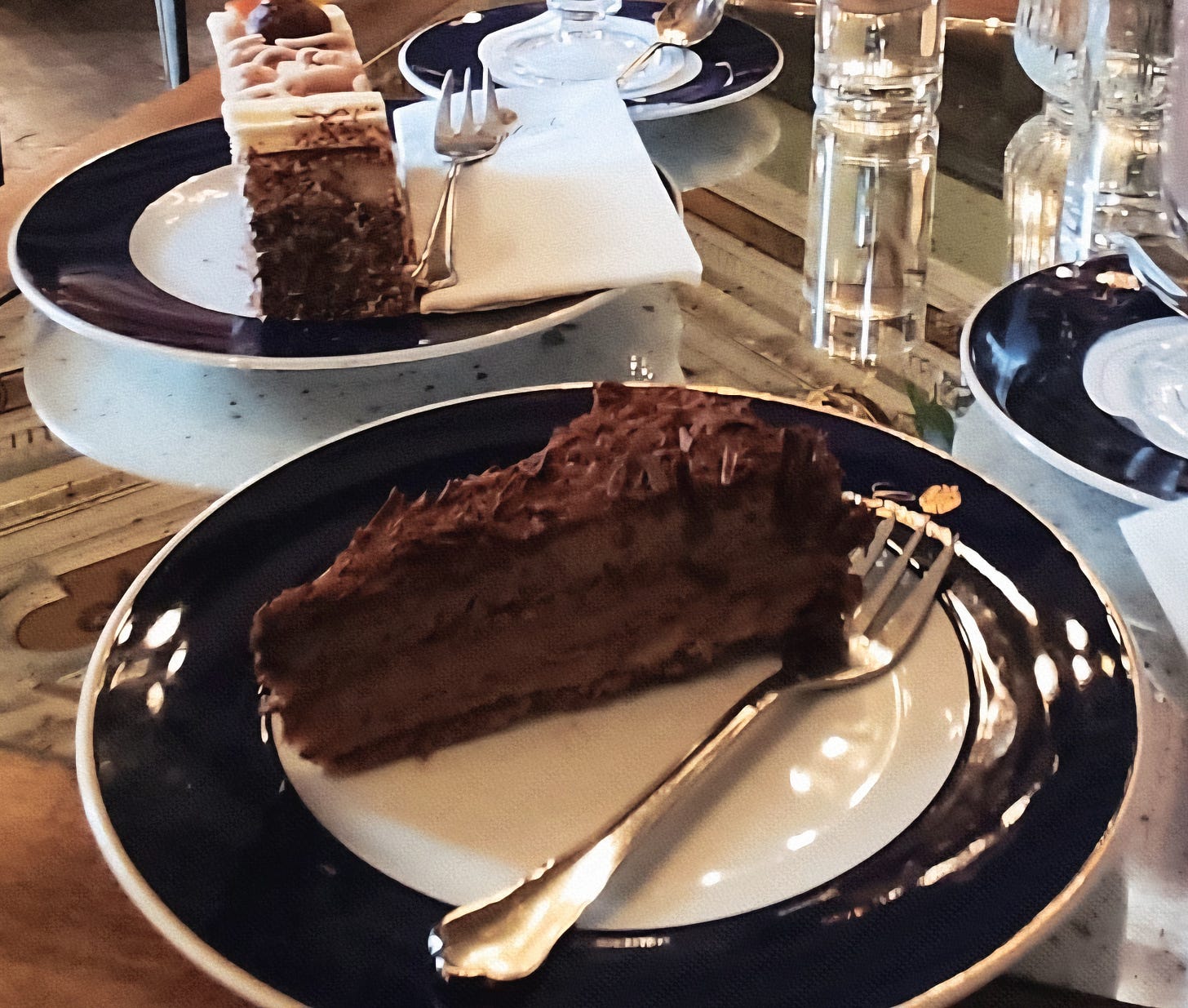I asked if Trump knew that his codename was Krasnov.
Mussayev paused, then through the translator said, “That I do not know, but I am sure that he knew at that time that he was talking to KGB officers.”
“KGB?” I asked, trying to get him to expand on what he could remember.
He nodded. “There were other KGB officers involved. Many of them knew about the code name. I was working with others to secure a covert operation.”
I asked the question I was almost embarrassed to ask: “Does Putin have kompromat on Trump?”
Mussayev didn’t flinch. He said he’d been asked this by many journalists. He reiterated that truth must be verified through multiple independent sources. But yes—there were serious indicators. He wouldn’t say more.
Then he leaned forward slightly, and the room seemed to get quieter.
“The world,” he said, “will be controlled by three.” He held up three fingers. “China. Russia. The United States.”
Not partners. Not friends. Not exactly enemies either. He saw it as a triangle of power—each watching the others, each vying for dominance over global systems. Finance. Surveillance. Propaganda. Trump, in his view, was the piece that could cement America’s place in that triangle—not to resist it, but to embrace the same tools.
Then he asked me a question.
Why was Closer to the Edge so active? Why are its readers so engaged?
I told him: because people are desperate for truth—and allergic to bullshit. They’re tired of being sedated. Some want facts. Others want fire. They want to be shaken out of it. I said a growing number of our readers were deeply drawn to his story.
I asked if he’d seen the France 24 video that dismissed him. To my surprise, he said he hadn’t. I asked about Snopes. He said he’d read a few articles, but didn’t elaborate—until I brought up one line specifically.
I mentioned that Daniyar Ashimbayev, the pro-Russian Kazakh analyst once quoted and then later retracted by Snopes, had called Mussayev’s allegation part of a “global circus.”
That changed the tone.
He didn’t laugh. He didn’t scoff. He sat back slightly, then leaned in again—speaking slowly, intentionally, in Russian. I maintained eye contact the entire time. When he finished, I turned to the translator.
He explained that the people repeating lines like that, especially in the West, were either being manipulated or weren’t thinking critically. Mussayev saw people like Ashimbayev as apologists for Russian influence inside Kazakhstan— people whose role it was to smear defectors, undermine critics, and sanitize authoritarian narratives. None of that was surprising. What did bother him, apparently, was how easily Western media echoed it without asking who benefits.
He saw it as a common tactic used by authoritarians. Delegitimize the source. Make the story sound ridiculous. Frame it as nonsense, and you never have to deal with the content. You don’t need to disprove something if you can make people laugh it off.
That’s how the machine works.
The waiter returned again. Another refill of our water. The translator asked him for the tab. The waiter said something in German before walking away.
I took a sip from my glass and explained that Trump already had his loyalists in place. Yes-men. Enablers.
After the translator conveyed this, Mussayev nodded. Through the translator, he warned me that Trump would soon take the government from within. Not in one sweep. But step by step. Through appointments. Policy shifts. Realignments. Quiet purges. And by the time the system realizes what’s happening—it’ll be too late.
I said I still believed a Democrat could win in 2028. That people were waking up. That the resistance felt sharper now than it did during Trump’s first term. I mentioned the No Kings Day protests planned for the fourteenth of June.
Mussayev smiled.
Not cruelly. Not smugly. Just a small, tired smile. The kind that says, you might still believe—but I’ve already lived through what happens when belief isn’t enough.
He called me an optimist.
We agreed to stay in contact.
Time was up.
The waiter brought us the bill. The translator insisted on paying for my slice of cake. I thanked him.
We stood. Took a few photos. Some of both of us. Some of just him. He straightened his jacket. Looked straight into the lens.
And that was it.
No warnings. No speeches. Just a handshake—and the sense that something irreversible had quietly shifted.
Outside, the sky cracked open. Rain slammed the pavement. The streets emptied. Vienna looked pale, as if the color had been drained out of it.
I walked alone through the downpour to the Australian Bar (yes, the Australian Bar), where Lukas waited with a beer.
I sat down across from him, soaked and rattled. I explained to him that Mussayev had told me that he had new information and would share it with me when he could, but it wouldn’t be today.
Because stories like this one can’t and don’t end neatly even though we wish they would.
This post has been syndicated from Closer to the Edge, where it was published under this address.


